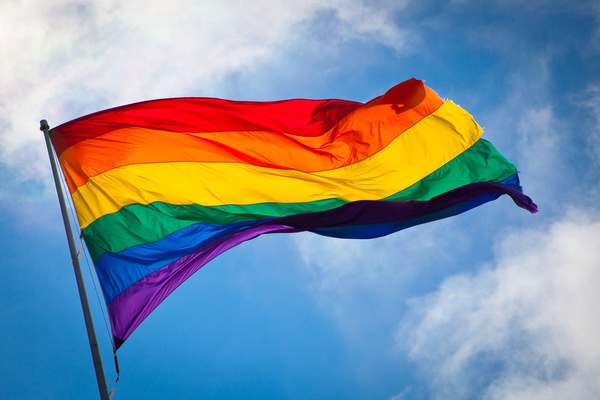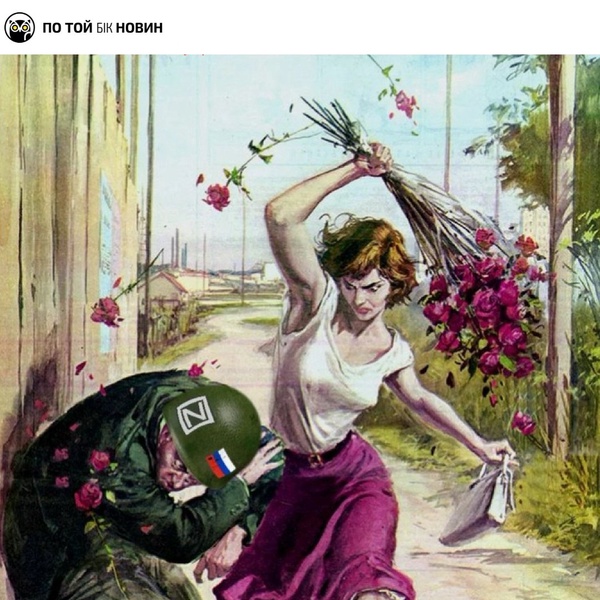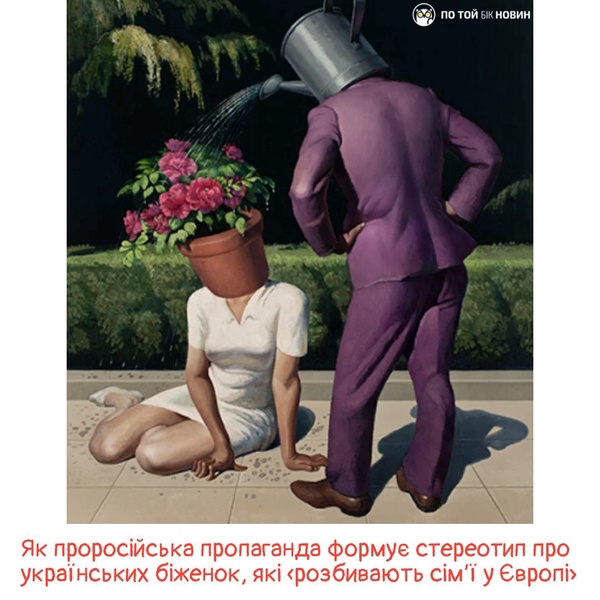Staying in touch and agreeing on a code word: how to protect yourself from human trafficking
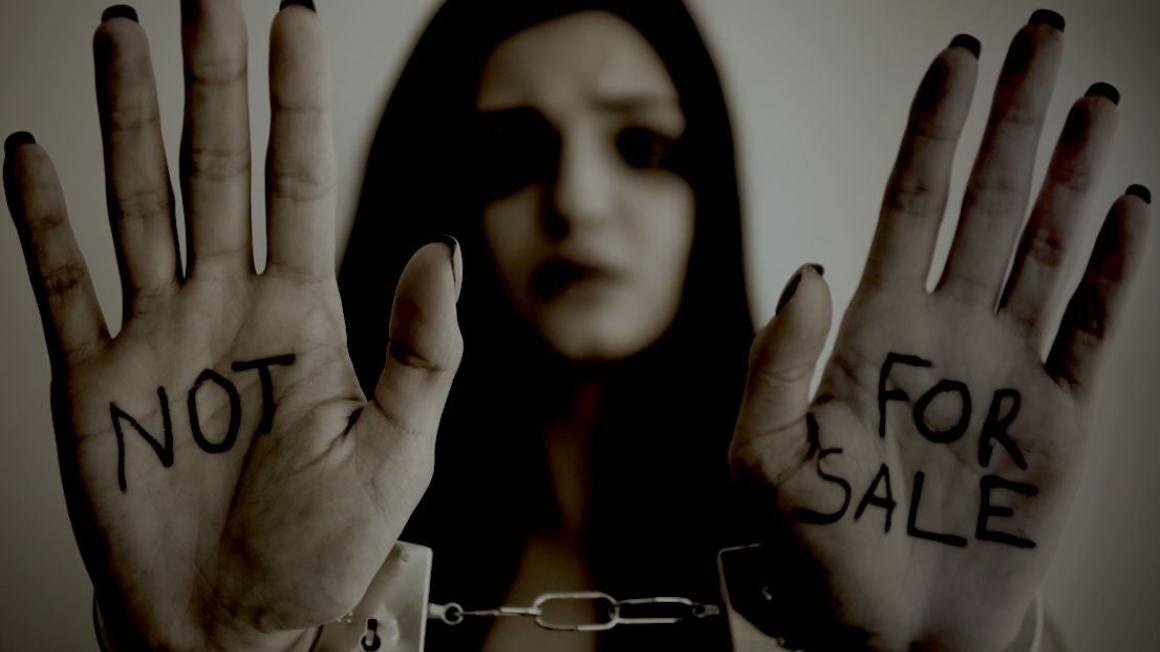
Women and children, who have been forced to leave their hometown, are particularly vulnerable to human trafficking. The U.S. State Department presents this conclusion in a report and underlines that this concerns almost 90% of Ukrainians who have left their homes. This includes 6.5 million Ukrainians in Europe alone, according to statistics from the United Nations High Commissioner for Refugees (as of September 13, they registered over 7 million refugees). In addition, the UN report states that between 900,000 to 1.6 million Ukrainians have been deported to the russian federation. Human rights activists have already recorded cases against so-called hosts, i.e. people who welcome refugees in their homes. Forced labour and sex slavery also remain relevant.
Here are some facts that internally displaced persons and refugees should keep in mind.
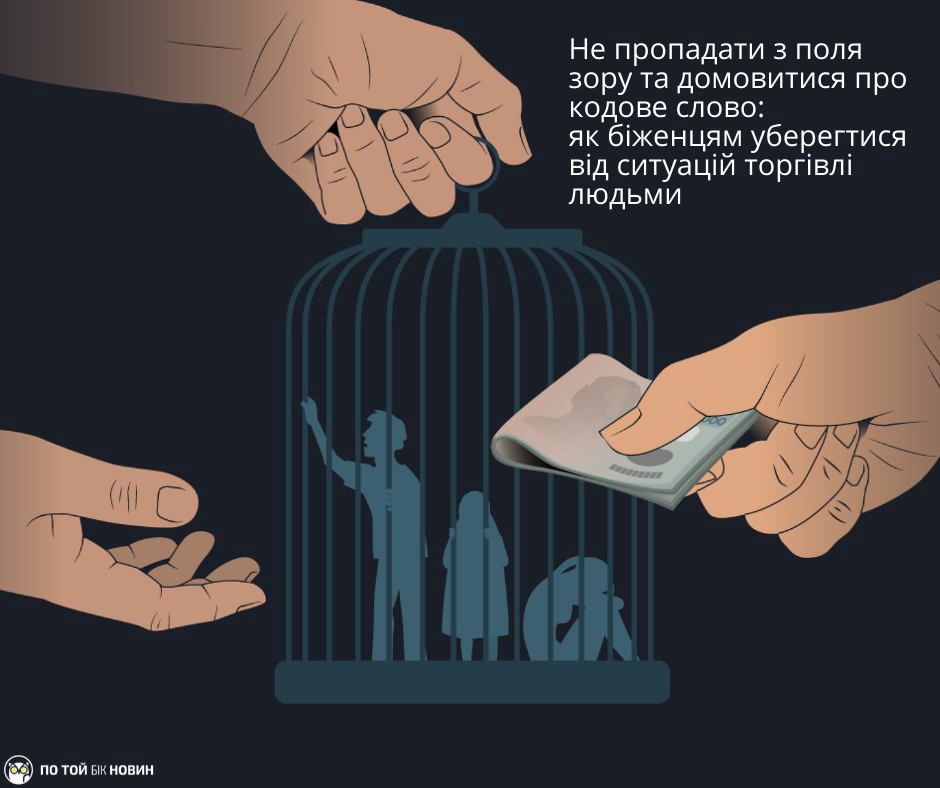
“Human trafficking threatens only individuals who have fled abroad.”
Actually, no. People who leave their hometown without documents and money and find themselves in an unfamiliar environment, even in their own country, are also at risk for forced labour and sexual exploitation. However, if they are abroad, their situation is even more complicated by the lack of knowledge of local laws and languages. Therefore, it will be difficult to complain or consult with human rights defenders or law enforcement officers. However, even if you are in Ukraine, you should keep your safety in mind and follow a number of simple rules:
- don’t give your documents to anyone (unless it’s a representative of the state authorities);
- relatives and friends should always know where you are and where you’re going;
- agree on a code word. If something happens to you but you can’t report it directly, your friends and family will immediately realize that you’re in trouble. Just say the code word;
- keep the phone numbers of the Ukrainian Embassy with you if you’re in a foreign country. If there’s no Ukrainian mission in the country where you’re staying, call the nearest embassy in another country.
“The host says I have to clean and cook/care for his family.”
Let’s say your host or the host family tells you that you must do the household chores in order “to repay their hospitality”. In fact, this is already human trafficking. Human rights organizations have documented cases where people, who have taken in Ukrainian women refugees, then use them as domestic workers or as carers for family members. Or the situation may even lead to sexual harassment.
In a nutshell, instead of encouraging them to look for a job, as is often required in the countries where Ukrainians have settled, host families use them for unpaid family work. Such cases should be reported immediately to anti-trafficking hotlines. Of course, it should be understood that this doesn’t concern any personal agreements on household duties that you may have made with the host family. In fact, it would be perfectly normal to share these tasks as you live under the same roof. But, if it all falls on your shoulders and you can’t negotiate with the hosts, then it’s time to sound the alarm.
“Men have nothing to worry about. Women can usually be trusted”
Experts explain that women, girls and women with children are indeed at higher risk for human trafficking…especially when it comes to sexual exploitation and forced labour. However, this doesn’t mean that men have nothing to worry about, because they’re usually “responsible for the statistics” regarding labour servitude. For example, there are many cases of men going to work on a construction site, where their documents are taken away and they are literally forced to work only for food. In 2021, the Ministry of Social Policy informed that 46 out of 96 applications to establish the status of victims of human trafficking were filed by men. Therefore, everyone should be careful.
Another myth is that you need to be more careful if a man offers you a job, but if it’s a woman, you’re much less likely to get into trouble. Since fraudsters are already aware of this stereotype, they often use it against women who are looking for work. And so, other women become intermediaries in human trafficking schemes, using different manipulative schemes to persuade a job seeker to enter into a suspicious venture.
If you or your friends/relatives are in a situation related to human trafficking, please contact the embassy of the country where you’re currently staying, the law enforcement agencies, or call 112 - a universal emergency number that operates in many EU countries ![]()



